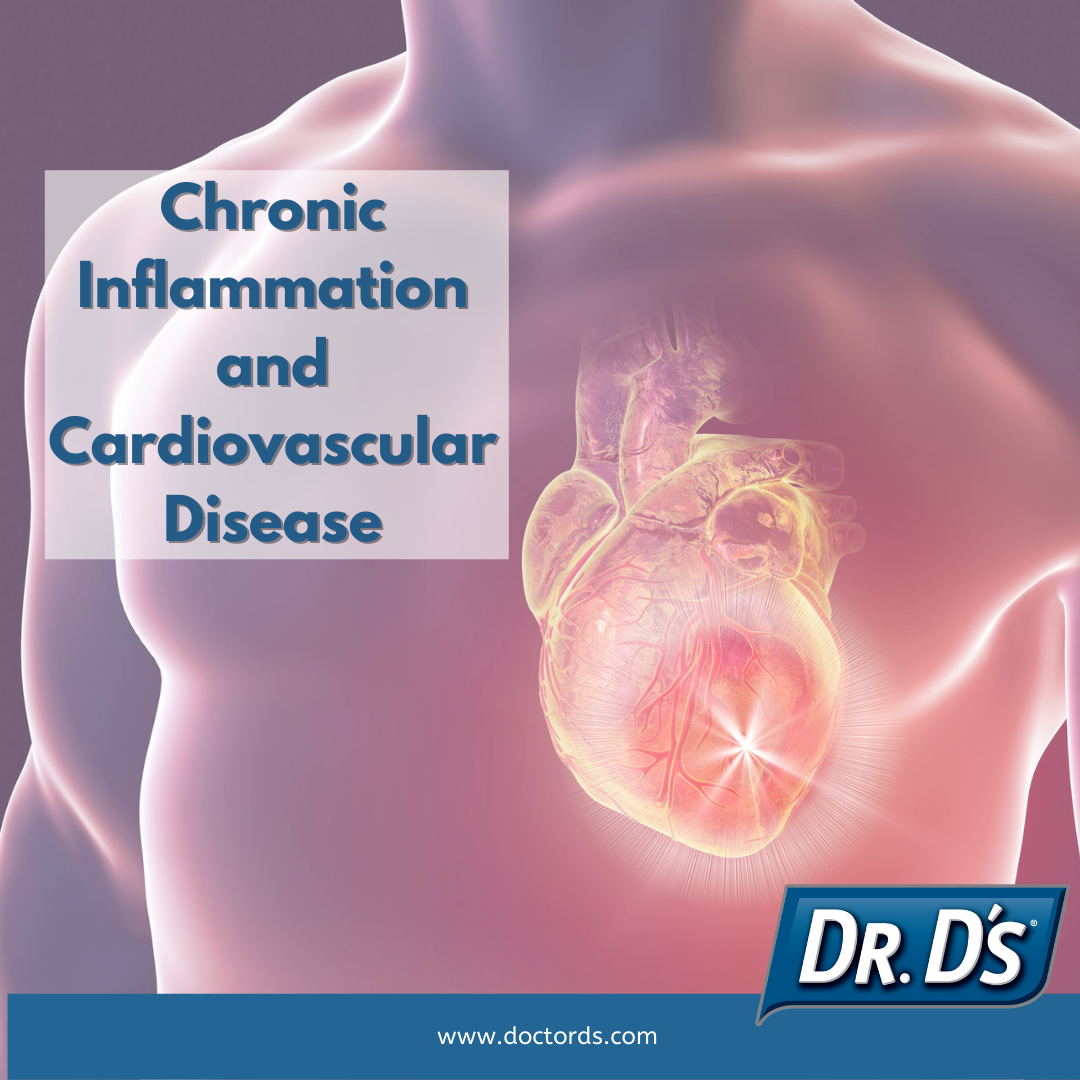
Chronic Inflammation and Cardiovascular Disease
Share
or that approximately 2.4 million Canadians aged 20 years and older suffer from ischemic heart disease.
As a matter of fact, heart conditions are the second leading cause of death in Canada.
The numbers are alarming as is, yet they do not illustrate the number of patients and their families who suffer from the debilitating consequences of heart disease and stroke, if the episode was not fatal.
Let’s take a look at the mechanism behind cardiovascular disease. You may be aware that buildup of plaques containing fat and cholesterol in the blood vessels are the precursors to heart attacks and strokes. Your risk is dictated depending on where the plaque build-up (known as atherosclerosis) forms. For example, you would be more predisposed to a stroke if these plaques form in the arterial walls of the brain, or to a heart attack if the plaque forms in or near the arterial walls of the heart. Keep in mind that plaque can form at multiple sites along the arterial walls, so the risk of both may exist simultaneously.
Here is where we get to the connection between atherosclerosis and chronic inflammation...
A large-scale study at Stanford University found that coronary artery disease risk might be linked to genes associated with inflammation. This likely happens because the body will recognize the plaque buildup as a foreign invader as it is not part of a normal blood vessel. Therefore, the immune system kicks in to respond to the threat, but the response is not always adaptive and becomes chronic. This persistent inflammation promotes continued plaque formation, progression and even makes it prone to rupture.
One way to interrupt this chronic inflammatory response is by adding a turmeric supplement to your health regimen. Turmeric can prevent atherosclerosis from forming but can also remove existing plaque- thereby reducing the risk of heart disease and stroke. The antioxidant power of turmeric can actually protect the heart. For one thing, it provides a mild blood thinning effect, which can prevent blood clots. It does so by inhibiting blood platelet aggregation, or accumulation, which makes it difficult for blood clots to form in the first place. Turmeric has also been shown to induce vasorelaxation, meaning the relaxation of blood vessels, which studies have shown can help lower heart rate and blood pressure, reducing the risk of cardiovascular stress. It also has been shown to reduce blood cholesterol levels, which can take pressure off the cardiovascular system as well. Lastly, turmeric has been shown to reverse heart enlargement and prevent some ventricular arrhythmias, or heart beat irregularities.
References:
THE POWER OF TURMERIC: A HEALING AND PREVENTATIVE GUIDE, DR. FABIO DI STEFANO, PUBLISHER PRODUCTION SOLUTIONS, 2018
American Heart and Stroke Association. Heart Disease and Stroke Statistics at a Glance. https://www.heart.org/idc/groups/ahamah-public/@wcm/@sop/@smd/documents/downloadable/ucm_470704.pdf
Government of Canada. Report from the Canadian Chronic Disease Surveillance System: Heart Disease in Canada, 2018. https://www.canada.ca/en/public-health/services/publications/diseases-conditions/report-heart-disease-Canada-2018.html
*THE CONTENT IN THESE BLOGS IS STRICTLY EDUCATIONAL AND NOT INTENDED TO BE A SUBSTITUTE FOR PROFESSIONAL MEDICAL ADVICE, DIAGNOSIS, OR TREATMENT. ALWAYS SEEK THE ADVICE OF YOUR PHYSICIAN OR OTHER QUALIFIED HEALTHCARE PROVIDER WITH ANY QUESTIONS YOU MAY HAVE REGARDING A MEDICAL CONDITION OR YOUR GENERAL HEALTH. ALWAYS THOROUGHLY READ AND FOLLOW INSTRUCTIONS ON THE LABELS OF YOUR SUPPLEMENTS AND/OR MEDICATIONS. NOTE THAT THE CONTENT IN THESE BLOGS MAY BECOME OUTDATED AS NEWER RESEARCH IS PUBLISHED.